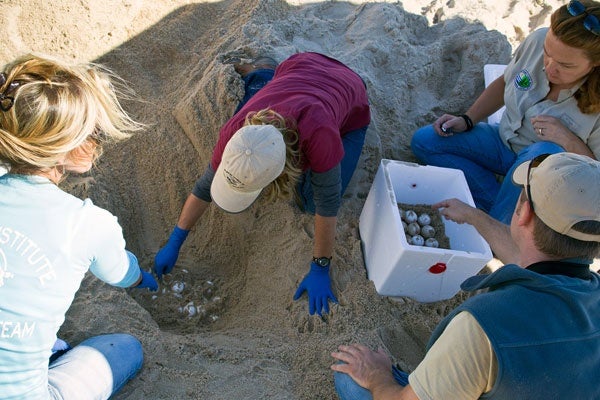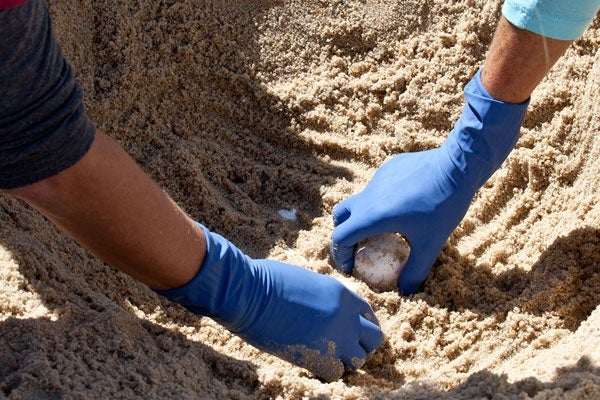Hatching a plan: Sea turtle eggs moved from Delaware beach to lab
Volunteers have painstakingly moved nearly 200 eggs from a sea turtle nest on the Delaware beach to a laboratory to protect them from lowering temperatures in the last weeks of their incubation.
They transported the eggs to a University of Delaware lab in Lewes after sand temperatures at Cape Henlopen State Park dipped to levels that would have surely killed the embryos.
“We’re in the process of installing some infrared cameras so we can monitor the eggs day and night in case we start to see any activity in the sand” that would suggest hatching, said Suzanne Thurman, director of the Marine Education, Research and Rehabilitation Institute.
Green sea turtles, a threatened species, typically nest on beaches in Texas or South Carolina earlier in the season.
This is the first documented nest in Delaware since at least the 1970s. Thurman said researchers don’t know why the mother strayed so far from typical nesting grounds.
Volunteers have been working to keep the nest protected since the eggs were laid in August. They moved the eggs up the beach so they would not be swept away, built a cage and kept watch over them at night to protect them from hungry foxes, then dug the eggs out after storms buried them.
Last week, when sand temperatures dropped into the 60s, Edna Stetzar, a biologist with the Delaware Division of Fish and Wildlife, led the egg excavation along with Thurman.
“We really wanted to let things play out naturally the best that they could, but in this case if we would have left the eggs in the nest in the sand, we pretty much would have been guaranteed 100 percent that there would have been no hatching success whatsoever,” Stetzar said.
Once they hatch, the babies will be released off the coast of Delaware or farther south to catch the Gulf Stream.
WHYY is your source for fact-based, in-depth journalism and information. As a nonprofit organization, we rely on financial support from readers like you. Please give today.















